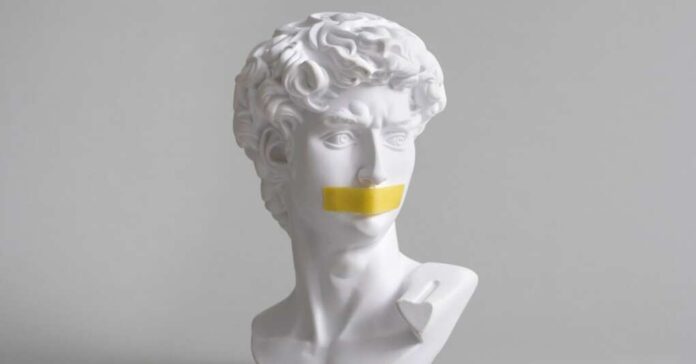
Defenders of the First Amendment were shocked on Wednesday after the SCOTUS ruled that Biden’s censorship is constitutional. Except that isn’t entirely what happened, despite the media’s victory laps.
The case in question, Murthy v. Missouri, was a federal lawsuit filed in Louisiana by the Republican attorneys general of Louisiana and Missouri and five social media users who claimed their social media posts, especially those related to COVID-19 and the 2020 election, were suppressed or censored at the government’s behest. They argued this censorship harmed both the states and their residents.
On July 4, 2023, U.S. District Judge Terry Doughty ruled that the federal government violated the First Amendment by coercing or encouraging social media platforms to moderate content, effectively making these platforms’ decisions governmental actions. Doughty restricted the White House and several others from influencing social media companies about most content.
The Biden administration took the case to the 5th Circuit, which mostly upheld Doughty’s order but limited its scope to fewer officials, including the White House, the Surgeon General, the CDC, and the FBI. The administration then appealed to the Supreme Court on September 14, seeking to pause Doughty’s order. The Supreme Court agreed to hear the case, with Justices Alito, Thomas, and Gorsuch dissenting, describing the decision to block Doughty’s order as “unreasoned” and “highly disturbing.”
It should have been open and shut, with the plaintiffs scoring an easy First Amendment victory. But SCOTUS didn’t see it the same way. In a 6-3 decision, the court ruled that the states and individuals failed to demonstrate the interactions between federal officials and social media platforms directly harmed them. In other words, they could not prove they had “legal standing” to bring the case forward.
According to the decision, the challengers could not prove that the government was behind the censorship efforts of social media platforms. Justice Amy Coney Barrett, writing for the majority, said that even though the record shows that “the Government played a role in at least some of the platforms’ moderation choices,” the platforms had “independent incentives to moderate content” and “used their own judgment.”
Justices Samuel A. Alito Jr, Neil Gorsuch, and Clarence Thomas dissented from their colleagues, arguing that SCOTUS sidestepped its duty to address the underlying free speech question and allowed future government officials free reign to continue to “control what the people say, hear, and think.”
Jameel Jaffer, executive director of the Knight First Amendment Institute at Columbia University, expressed disappointment that the justices did not provide clear guidelines for tech companies and the federal government on applying the First Amendment to social media. He emphasized the need for the court to define the boundary between acceptable government persuasion and unlawful government coercion.
White House press secretary Karine Jean-Pierre stated that the court’s ruling allows the administration to continue engaging with social media and tech companies on issues such as terrorism, foreign influence, online harassment, and children’s mental health. She emphasized that while social media companies make their own decisions about content, they must consider the impact of their platforms on Americans and “national security.”
Democrats immediately called on Jim Jordan (R-OH) to stop the House Judiciary Committee’s investigations into the government’s role of actively censoring opposing views on social media. Jordan and his colleagues have uncovered massive governmental censorship efforts across all platforms, from Twitter to YouTube and Facebook. Evidence presented before the SCOTUS in Murthy v Missouri included emails exchanged between Biden administration officials and social media companies like Meta and Twitter, revealing tense discussions in 2021 during the campaign to promote COVID-19 vaccinations.
Jordan has vowed that the committee will continue its investigations.
Murthy v Missouri is just the first censorship case to be considered by SCOTUS and will not be the last. This case could not pass the preliminary hurdles, but others might have better “standing” moving forward. Still, the timing of this decision will allow Team Biden to own social media platforms in the months leading up to the 2024 election, with Trump iced out completely.
Anyone who doubts the ability of the government to influence voters needs to look no further than the Hunter Biden laptop fiasco. In 2023, polls revealed that 79% of voters think that Trump would have won in 2020 had Americans known about the damning information on the device.
With the Biden administration already condemning evidence of Biden’s mental decline as false, it’s easy to see how this will shape up heading into November. Goodbye, free speech; we should have appreciated you more.














